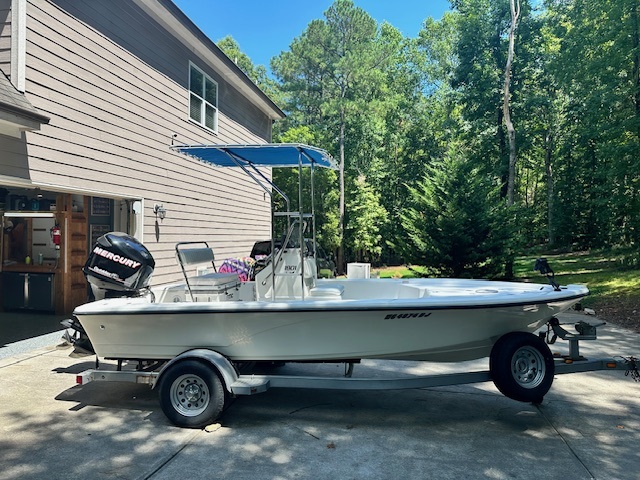Winterizing your Raleigh North Carolina Boat tips
Winterizing your boat in Raleigh, North Carolina, is essential to protect it from the colder temperatures and moisture that can cause damage during the off-season. Even though Raleigh has relatively mild winters compared to other parts of the country, freezing temperatures can still occur, and extended periods of inactivity can lead to corrosion, engine issues, and other forms of damage. Here are some essential winterization tips to keep your boat in top condition until you’re ready to hit the water again in the spring.
- Clean Your Boat Thoroughly
- Wash and Dry the Exterior: Start by thoroughly washing the hull and deck. Make sure to remove any dirt, algae, or debris, especially from the bottom of the boat. Clean the boat while it’s still warm from use to avoid dirt and grime settling into crevices.
- Clean the Interior: Vacuum and wipe down the interior of the boat, including seats, carpeting, and storage compartments. Clean out any food, garbage, or moisture that could lead to mold or mildew buildup over the winter. Consider using a marine cleaner and a mildew-resistant spray on upholstery.
- Flush Out Livewells and Fishing Compartments: Empty and clean any livewells, bait tanks, and fishing compartments to prevent smells and bacteria growth. Rinse and sanitize them thoroughly.
- Drain and Flush the Engine
- Flush the Engine with Freshwater: After your last trip, it’s important to flush out the engine with fresh water to remove any salt, minerals, or debris. Even in freshwater, you can still accumulate buildup. Use a flushing kit to ensure the engine’s cooling system is free of contaminants.
- Drain the Engine and Water Systems: Make sure to drain all water from the engine, including any hoses, water intakes, and the bilge. Water left in the engine can freeze and cause cracks. For inboard engines, ensure the exhaust system and cooling lines are drained completely.
- Antifreeze: Add non-toxic antifreeze (propylene glycol) to the engine’s cooling system. This will prevent freezing and cracking. Consult your boat’s manual to know the exact process for your engine, as some models require specific antifreeze treatment.
- Stabilize the Fuel System
- Add Fuel Stabilizer: Pour a fuel stabilizer into your gas tank and run the engine for about 10 minutes to allow the stabilizer to circulate through the system. This prevents the gas from breaking down and causing gum or varnish buildup in the engine’s fuel system.
- Fill the Gas Tank: A full gas tank helps prevent moisture from building up inside the tank and reduces the risk of corrosion. This is particularly important in Raleigh’s fluctuating humidity and temperature levels during winter.
- Change the Fuel Filter: Consider replacing the fuel filter to prevent contaminants from clogging the fuel system when you bring the boat back out next season.
- Protect the Battery
- Disconnect the Battery: Disconnect the battery to prevent it from draining during the off-season. Remove it from the boat and store it in a cool, dry place. Don’t store it directly on a concrete surface, as it can cause the battery to discharge.
- Clean the Battery Terminals: Clean the battery terminals and cables with a solution of baking soda and water to remove any corrosion. Apply a layer of grease or petroleum jelly to the terminals to prevent future corrosion.
- Use a Trickle Charger: To keep the battery charged and in good condition, use a trickle charger or a battery maintainer over the winter. This will keep the battery at an optimal charge level without overcharging.
- Winterize the Water System
- Drain the Water from the Plumbing: Drain all water from onboard plumbing, including sinks, showers, and water lines. Leave the faucets open so any remaining water can evaporate.
- Use Antifreeze in Plumbing: For boats with an onboard freshwater system, add non-toxic marine antifreeze to the water lines to prevent freezing. Follow your boat’s manual for the specific steps for this process.
- Sanitize the Holding Tank: Empty and clean the waste holding tank, and use a holding tank deodorizer to reduce odors over the winter. This also ensures that there is no stagnant waste left behind to cause issues when you return.
- Inspect and Lubricate Mechanical Components
- Lubricate Moving Parts: Apply marine-grade grease to all moving parts such as steering cables, throttle and gear linkages, and the prop shaft. This prevents rust and corrosion during storage.
- Check and Replace the Propeller: Inspect your propeller for damage such as cracks, nicks, or missing blades. If necessary, replace it to prevent future issues.
- Inspect Belts and Hoses: Check all belts and hoses for signs of wear, cracks, or corrosion. Replace any parts that look damaged to avoid problems when you launch the boat next season.
- Protect the Hull and Gel Coat
- Wax the Hull: After cleaning, apply a good-quality marine wax to the hull to protect the gel coat from oxidation. The wax will provide a layer of protection from UV damage, dirt, and water.
- Inspect for Damage: Check the hull for any cracks, chips, or gouges. Address any issues before they can worsen over the winter. You can repair minor cracks or nicks with gel coat repair kits.
- Cover the Boat: Cover your boat with a high-quality, breathable cover to protect it from moisture, UV rays, and dust. If your boat is stored outdoors, make sure the cover is fitted snugly and allows for ventilation to prevent mildew buildup. A shrink wrap cover is another option for added protection from harsh weather.
- Proper Storage
- Indoor Storage: If possible, store your boat indoors to shield it from the elements. This is the most reliable option for preventing cold damage, moisture buildup, and potential mildew or mold growth.
- Outdoor Storage: If your boat is stored outside, ensure it’s on a trailer with the bow slightly elevated to allow water to drain off. Consider placing it on blocks or a jack stand to relieve pressure from the tires and prevent flat spots.
- Use a Boat Lift: If your boat is docked for the winter, a boat lift is a great way to keep it above the waterline and away from freezing temperatures. This helps prevent hull damage, especially if the water level fluctuates during the winter.
- Check for Rodents and Pests
- Seal All Openings: Mice and other pests can find their way into boats stored outside or in garages. Seal all openings, including vents, windows, and small cracks, with appropriate materials like mesh or rubber seals.
- Set Traps: If you’re storing the boat in a garage or shed, consider setting traps or using natural repellents to keep pests away.
- Document and Review
- Make Notes for Spring: Before storing the boat, take notes on any repairs or maintenance tasks that need to be completed in the spring. This will help you prioritize your to-do list when you’re ready to launch the boat for the new season.
- Check Insurance Coverage: Review your boat’s insurance policy to ensure it’s covered during the winter months, especially if you’re storing it outside or in an area prone to severe weather.
By taking the time to properly winterize your boat, you’ll save yourself a lot of trouble when it’s time to get back out on the water. Regular winterization maintenance will help ensure your boat is ready for the next season and will last for many years to come.
When you need the best for your Boat, RV, and vehicle contact S. R. Boat Works. S. R. Boat Works offers a full range of services to get you back on the water, road or your favorite offroad path. S. R. Boat Works not only can provide amazing service for your boat, but also offer a variety of options for your offroad vehicle or your daily driver. To learn more visit us at https://srboatworks.com , or on Facebook at https://www.facebook.com/srboatworksnc
To request a quote visit https://srboatworks.com/contact-us/ , or text or call us at (919) 438-8507 for fastest service.


